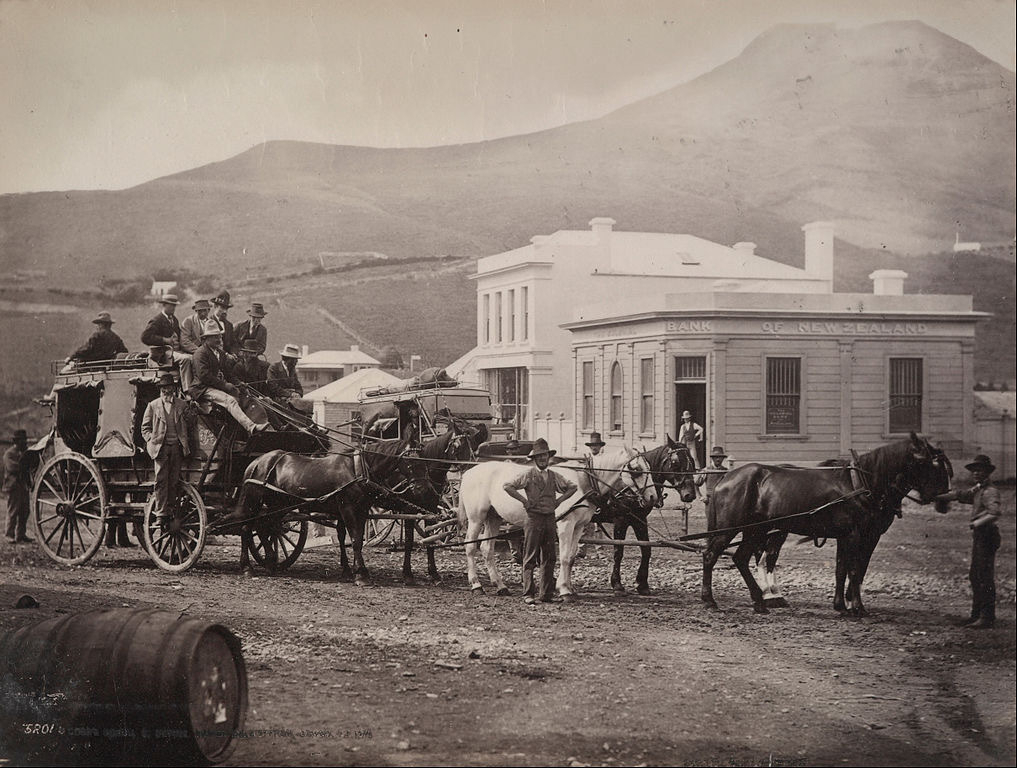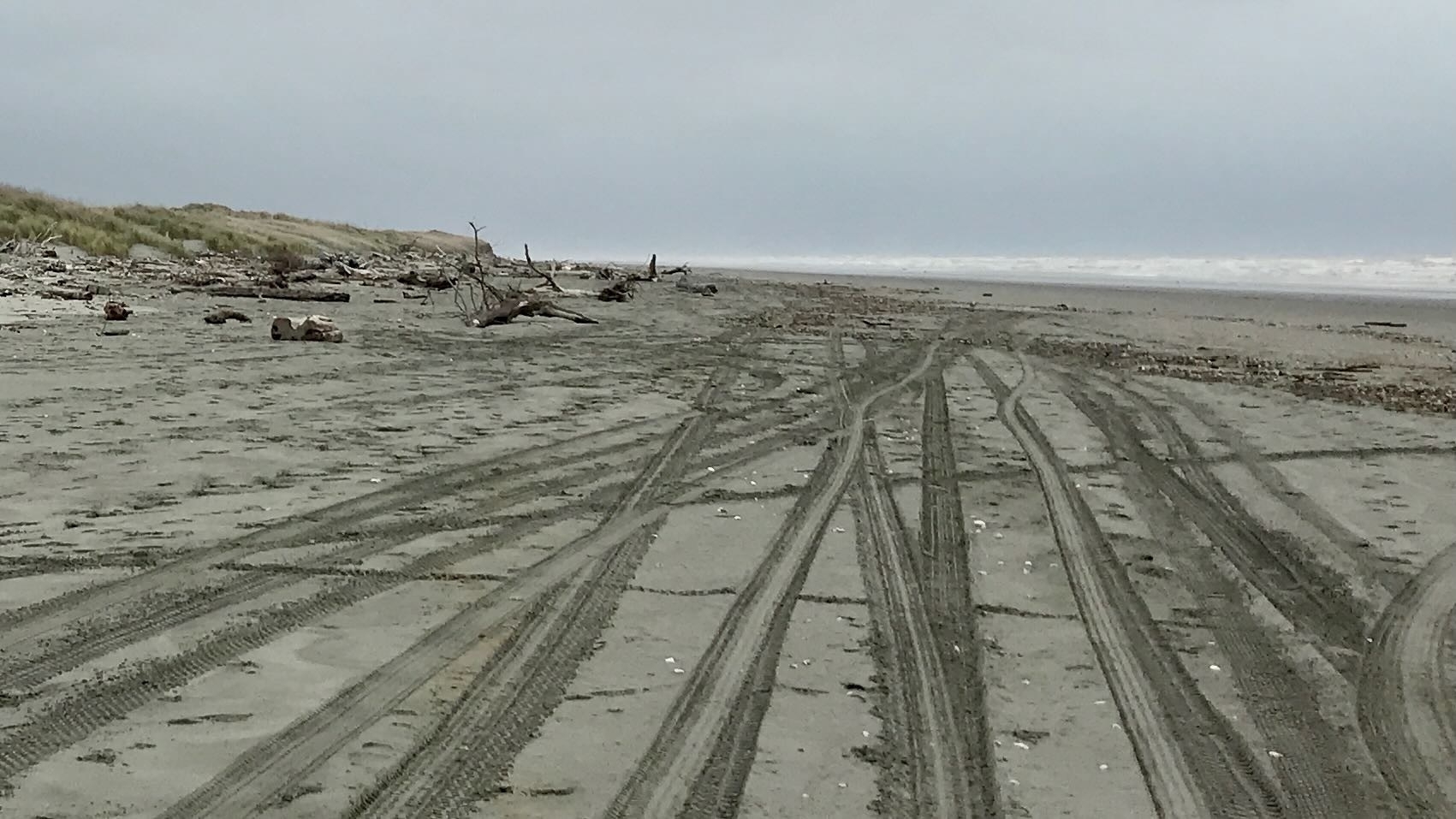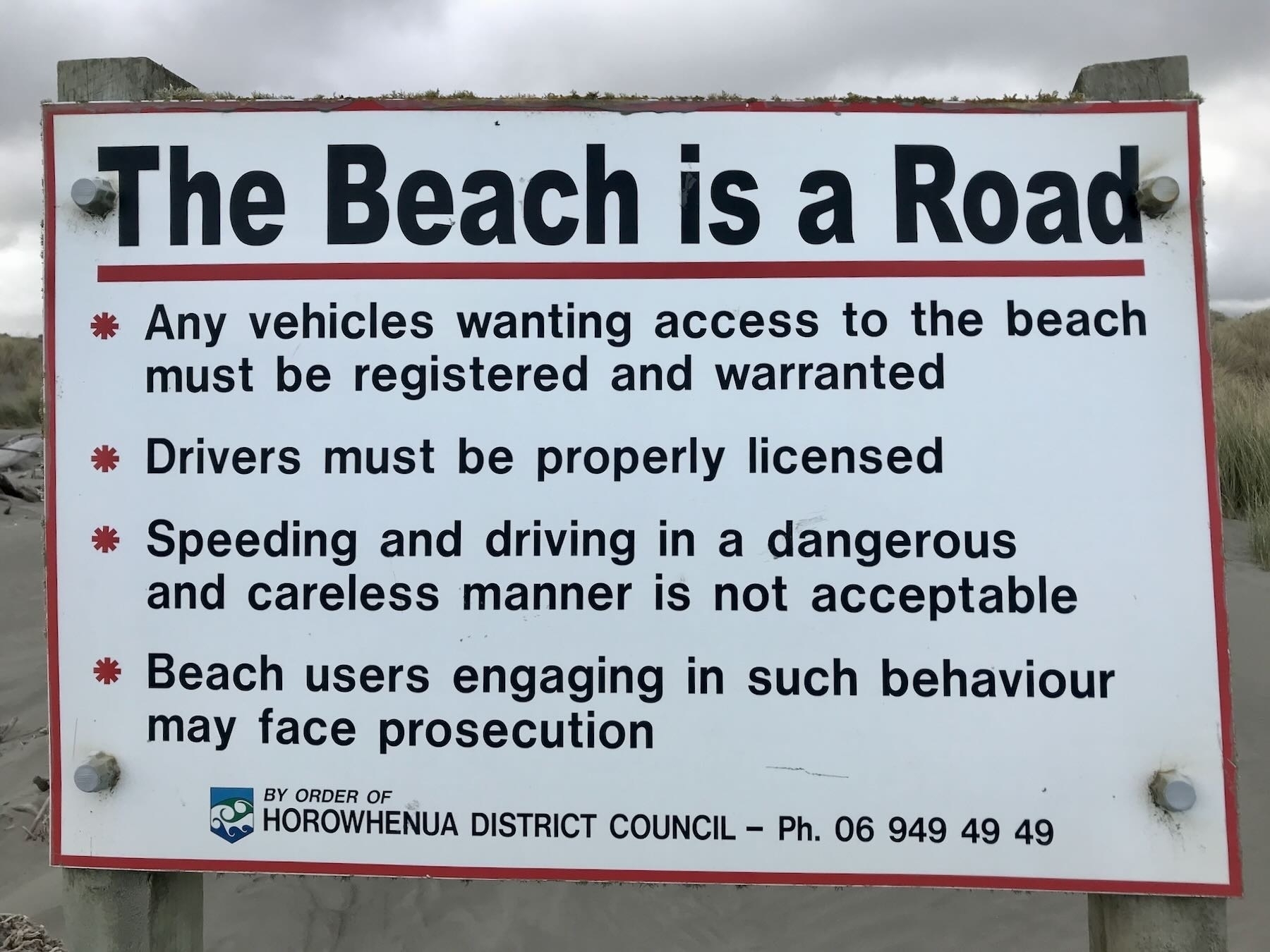
The beach has always been a road — so says anyone around here.

In my mind, that meant that occasionally a coach would manoeuvre its way along the sand.
But apparently Waikawa Beach used to be fair thronging with travellers, as the following excerpt from a very interesting book makes clear:
From Foxton to Wellington in Cobb and Company's coach was a long day's journey, in winter a journey of infinite difficulties and delays, but in summer one of the pleasantest trips which could be undertaken. At six in the morning the coach left the company's big slab and / or-thatched stable on the southern bank of the Manawatu River, across which the passengers from the north, who had come by another coach to Foxton the previous night, had been rowed, shivering, a few minutes earlier, after a more or less satisfactory night's rest at Langley's hotel on the further bank. (Later a detour was made inland across the sandhills to take the coach to the Foxton township.)
Spanking down the level beach, the coach reached my father's accommodation house, or hotel, at 8 a.m., and was off again in a few minutes, and away, with a fresh team, for Otaki. Mile after mile along the firm sand, with the six horses swinging the heavy leathern-sprung coach along effortlessly, harness rattling as the cantering leaders tossed their heads, straining at the bits : on the right the sea sparkling mile on mile away to the bold peak of Kapiti. On the left the grassed sandhills, and the bush beyond. At the Ohau the guard would fling out a mail-bag to the boy from Kebbell's run, sitting statuelike on his horse beside the track, then across the river at the shallow mouth and away without a stop for Otaki.
Down along the wide beach it would speed at a slashing ten miles an hour, past a heterogeneous procession of men and stock, everything giving way to Her Majesty's Mail. Here in charge of a mob of wild-eyed station steers for the Wellington butchers, would ride quite capable stockmen, with fourteen foot stockwhip coiled, and trained thoroughbred stock horses, to chop back on to the road any attempt of the jostling bullocks to stampede to the sandhills ; there a mob of sheep which had left the Hokio at dawn are making for Tom Roach's accommodation paddock at the Ohau hotel for the night ; here a long line of drays carry potatoes and corn to Wellington for the pas along the coast ; there a drove of pigs a hundred strong, are being driven, some to be sold to the farmers on the further side of the Paekakariki Hill, and some for the butcher's shops on "The Beach," as Lambton Quay, one sided then and huddled insignificantly up against the steep ridge behind, was called. A smart buggy, behind a pair of clipping trotters, belongs to one of the Rangitikei squatters ; a party of horsemen are riding down from Wanganui to Wellington, in preference to taking the boat ; a settler for the Foxton Block passes with the whole of his possessions heaped on a bullock dray, on which find a place also his wife and a long string of children, whilst behind them a few cows, and perhaps a horse or two. are driven. Swaggers, drovers, pedlers, all the traffic, and all the trade of a great highway before the railways were, a collection which to modern eyes would appear of the strangest, the coach rattles past.
Half a mile north of the Otaki river the route left the beach, this being on account of the boulders at the mouth of the river, and struck inland, passing along the old road constructed by the Maoris in the 50's when they obtained the first bullock drays, past the present Convent property to the Otaki township. Tn the yard at Martin's hotel opposite the Maori church, the whole population of Otaki would gather beneath the shade of the elderberry trees waiting for the big distraction of the day. Why not? There was nothing much to do anyone could get food, and why worry about anything else? So they would gather, and smoke, and make bets as to whether the coach would be late or not.

Note: I discovered this in a book called Te Hekenga; early days in Horowhenua, being the reminiscences of Mr. Rod. McDonald, by McDonald, Rod. A; O'Donnell, Elliott and published in the 1920s.
Note: The picture of a Cobb and Co coach is from Wikimedia Commons, Title: Cobb and Co. coach, Palmerston, Otago, Artist: William P. Hart (1845 - 1926) – photographer, Dead in Queenstown, Date: from 1880 until 1890.